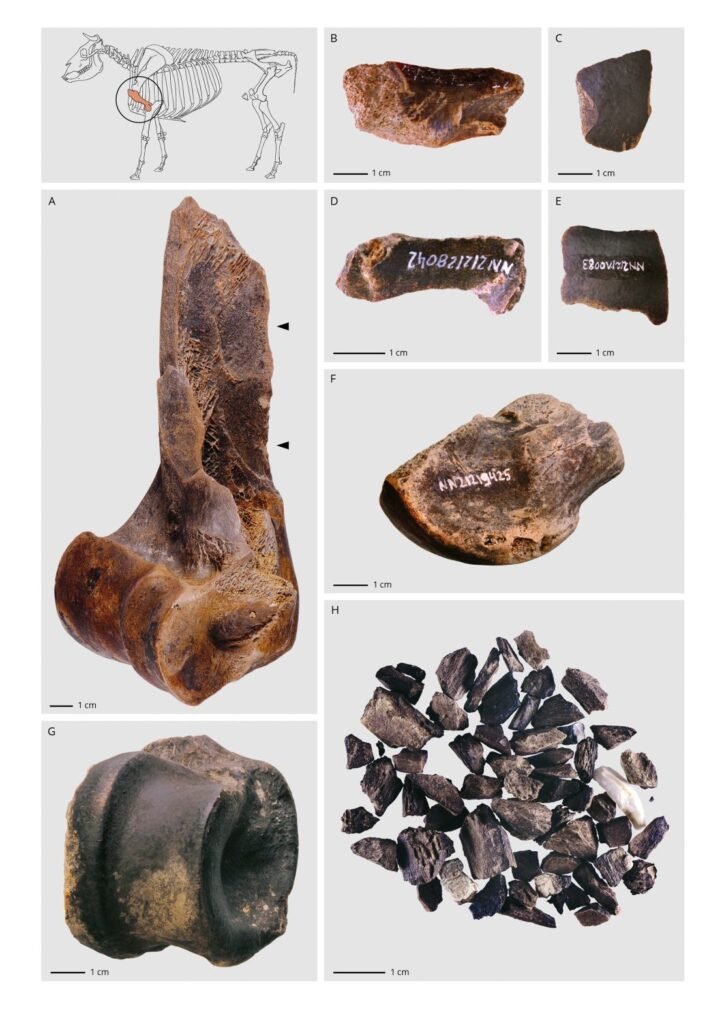Editor’s Notes: With the exception of the United States, every Western ally refused to sell Israel ammunition. Only three unexpected partners filled the gap: Hungary, Serbia, and the Czech Republic.
A senior Israeli defense official confided to me this week that, while Jerusalem enjoyed a brief wave of diplomatic sympathy when Hamas launched its attacks in October 2023, that solidarity did not translate into hard support on the battlefield.
With the lone exception of the United States, every Western ally, Germany and Italy among them, refused to sell Israel ammunition or other critical material. Ultimately, only three unexpected partners filled the gap: Hungary, Serbia, and the Czech Republic.
“Israel’s greatest allies imposed an arms embargo on Israel,” the official said, his frustration only partly concealed. “Apart from the Americans, no one would supply us with equipment for offensive operations, or even sell us the parts to produce it ourselves, except Hungary, Serbia, and the Czech Republic.”
That verdict has sharpened a long-running debate inside the Defense Ministry: Israel, the official argued, must double down on its own defense-industrial base so that future wars are not fought with ammunition that hinges on foreign political whims.
Serbia: The main lifeline
Nowhere was the policy gulf clearer than in Belgrade. Serbia’s state exporter, Yugoimport SDPR, dramatically expanded deliveries after October 2023. Balkan media tracked a flurry of cargo flights linking Serbian airfields and Israeli bases: in July 2024 alone, roughly €7.3 million in weapons and ammunition departed for Israel. By year’s end, that figure climbed to about €23.1 million, and Serbian officials ultimately tallied €42.3 million in 2024 exports, up from just €1.4 million the previous year.

‘WE WILL always… like the Jewish people and Israel.’ Serbian President Aleksandar Vucic has developed strong relations between Serbia and Israel under his presidency. Here, he attends a rally in the southern city of Nis last month. (credit: Sasa Djordjevic/AFP via Getty Images)
Most of those shipments were 155 mm artillery shells, the workhorses of modern land warfare. Photographs showed rows of green-painted pallets pushed into the bellies of Israeli transport aircraft, watched over by air force crews in both countries. Serbia’s president, Aleksandar Vučić, even acknowledged the surge, telling local reporters that Belgrade had “accelerated deliveries” to help Israel replenish dwindling stocks.
I spoke about those figures with The Jerusalem Post’s news editor, Alex Winston, who had just returned from Belgrade. When Winston pressed Vučić on the criticism he faced in the European Union for arming Israel, the Serbian leader was blunt: “I am the only one in Europe today dealing in military munitions with Israel, and that is why I am often criticized by colleagues.”
Investigative outlets have indeed tried to turn up the heat. Serbian watchdog KRIK joined Germany’s Bild in alleging irregularities in the deals, though none of the claims have been proved. Vučić, meanwhile, shifted course again this summer: by June 2025, he promised to halt further ammunition transfers and redirect remaining stockpiles to the Serbian army.
Hungary: Political friendship, not firepower
If Belgrade supplied the shells, Budapest mainly offered rhetoric. Hungarian defense firms have cooperated with Israel before, with joint drone programs and about €15 million in exports between 2014 and 2022. Still, there is no evidence of fresh deliveries since the Gaza war began. Hungarian officials I contacted refused to discuss the matter, speaking only in general terms about their country’s “substantial support” for Israel.
That support has been highly visible. Prime Minister Viktor Orbán welcomed Prime Minister Benjamin Netanyahu to Budapest on April 3, 2025, praising Israel as “an anchor in the Middle East.” Days later, Foreign Minister Péter Szijjártó announced that Hungary would leave the International Criminal Court over the arrest warrant issued for Netanyahu, proof, Orbán said, that the court had become “political.”
Yet enthusiasm in parliament has not translated into crates of bullets or barrels. Hungary’s defense start-up N7 Defence Zrt. chases global markets, but none of its catalog appears to have reached the IDF during this war. For Jerusalem, Budapest’s friendship is real, just not kinetic.
The Czech Republic: Armor plates on the first plane
Prague’s aid was concrete, if limited. Within days of the October 2023 attacks, Czech industry rushed about 3,000 ballistic armor plates and vests to Israel. The export paperwork was fast-tracked, customs checks waived, and the gear arrived on IDF bases while rockets were still falling. The contractor behind the shipment, STV Group, later confirmed it could provide more if asked; so far, Israel has not requested additional batches.
Other Czech defense houses stayed on the sidelines. The engine maker PBS Velká Bíteš and others maintained ongoing joint ventures with Israel, but those projects serve Czech modernization, not Israeli consumption. Civil-society voices steered the opposite direction: in February 2024, hundreds of protesters gathered outside the Israeli embassy in Prague, waving “Ceasefire Now” banners and accusing their government of complicity. Amnesty International’s Czech branch joined similar calls to suspend arms sales, though their statements cited no specific deliveries beyond the initial body armor.
The three Central European outliers stand in stark contrast to the broader Western policy since October 2023. Lacking a UN Security Council embargo, each government has improvised its own red lines:
Canada froze new export permits on January 8, 2024, “until we can verify end-use compliance,” the foreign ministry said.
Spain not only halted licenses in October 2023 but also canceled a €285 million anti-tank missile contract, a move it later publicized under domestic pressure.
Belgium’s Walloon region quietly suspended two gunpowder licenses in February 2024 after lobbying by NGOs.
In the Netherlands, the Hague Court of Appeal ordered a stop to F-35 parts exports on February 12, 2024; the government appealed, leaving the flow in legal limbo.
The UK survived a similar legal challenge when the High Court ruled on June 30, 2025, that exports could continue, even if parts ended up in Gaza.
For Israeli planners, the message is alarming: political sentiment, no matter how sympathetic it may sound, can close a supply pipeline overnight. That reality explains the urgency in the Defense Ministry to expand domestic production lines for everything from 155 mm shells to precision-guided rockets.
Where Jerusalem goes from here
Israel’s defense industry is hardly starting from scratch. The country boasts world-class firms in unmanned systems, missile defense, and cybersecurity. But the Gaza war has exposed a softer underbelly: bulk ammunition and basic ordnance are still procured abroad, often from allies now wary of newspaper photographs showing their serial numbers littering Rafah’s streets.
The official who briefed me stressed that Israel must insulate itself from that vulnerability. “We can no longer assume our friends will keep the warehouses open,” he said. “We need a national shell foundry, a national propellant plant, and we need them yesterday.”
Serbia’s sudden generosity, Hungary’s loud diplomacy, and the Czech Republic’s lone airlift may have bridged the immediate gap. Yet those channels are already closing.
The United States remains the indispensable partner, but Washington’s support, too, has always carried political conditions, from congressional oversight to battlefield usage tracking. Should another front erupt, Israel would again be forced to weigh its operational tempo against the risk of running short on shells.
War keeps its own ledger. For journalists, that ledger is usually measured in shells and flight hours; for diplomats, in licenses signed or withheld. But for anyone who believes character is tested under pressure, the true account reads more like the old proverb: “Show me who your friends are, and I’ll tell you who you are.”
When Israeli towns burned and most of Europe invoked legal footnotes, it was Serbia loading pallets of 155 mm rounds, the Czech Republic rushing armor plates, and Hungary wielding its vetoes and withdrawals on Israel’s behalf. They are not the continent’s largest economies, nor its loudest powers, yet they stepped up when it counted, an act that deserves more than a footnote. Jerusalem should express its gratitude plainly, thank them publicly, and weave those gestures into deeper industrial and diplomatic ties.
At the same time, the lesson at home is equally clear: Self-reliance is the first shield; reliable partners are the second. In the next crisis, Israel will need both, and it now knows exactly which capitals to call first.






